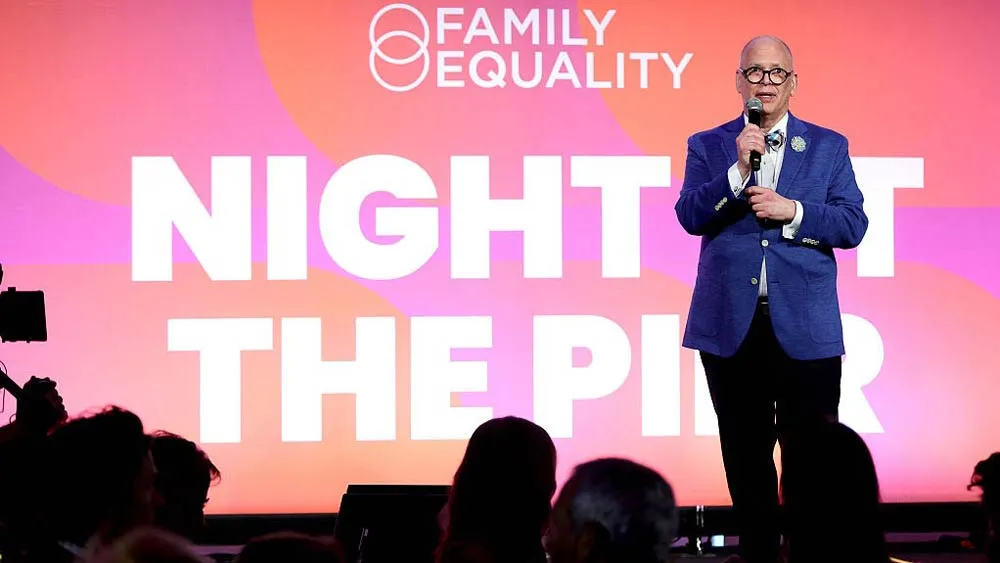November 8, 2012
Transgender Coloradans Face Daunting Obstacles
Lindsay King- Miller READ TIME: 4 MIN.
According to the Colorado findings of the National Transgender Discrimination Study, transgender Coloradans still face serious obstacles in the form of discrimination that affects nearly every aspect of their lives, from workplace discrimination to unemployment to homelessness to health care inequalities.
On October 22, One Colorado Education Fund and the Gender Identity Center of Colorado released the state's breakout data. This data was drawn from the comprehensive 2011 national study, "Injustice at Every Turn: A Report of the National Transgender Discrimination Survey," compiled by the National Center for Transgender Equality and the National Gay and Lesbian Task Force, which collected data from transgender and gender-non-conforming people around the country.
The picture presented by these statistics is a sobering one. Transgender people in Colorado are hugely impacted by workplace discrimination, with 77 percent of respondents reporting that they have experienced harassment or discrimination on the job. Forty-seven percent were not hired due to being transgender, 32 percent were fired, and 24 percent were denied a promotion.
"Workplace discrimination is probably the largest problem, because it in turn causes so many other problems, like homelessness or inability to access health care," NGLTF Transgender Civil Rights Project Director Lisa Mottet told EDGE. Indeed, 18 percent of Colorado respondents reported becoming homeless due to being transgender or gender non-conforming. In addition, the number of transgender Coloradans living in poverty is almost four times the national average, due at least in part to inequalities in employment.
"We went in knowing there would be high rates of discrimination," says Mottet, "but we were surprised at how severe it actually was. The rate of discrimination was significantly higher than we expected; basically everybody experiences discrimination on the job."
Those transgender people who manage to avoid workplace discrimination, unemployment, or homelessness are still likely to face some form of discrimination in the world at large. According to the study, 61 percent of Colorado respondents were "verbally harassed or disrespected in a place of public accommodation or service, including hotels, restaurants, buses, airports and government agencies."
In addition, experience with public harassment may make people less likely to seek legal redress when they are mistreated. Fifty-one percent of respondents said they were uncomfortable seeking police assistance, and 28 percent of those who have interacted with police reported harassment by officers.
Trans Health Care Discrimination Runs Rampant
Health care is another area of inequality and discrepancy. Sixteen percent of respondents reported being denied medical care due to being transgender or gender-non-conforming, and 28 percent said they postponed seeking treatment for illness or injury because they feared discrimination.
"I hear stories about folks who go into a hospital setting and people are using the wrong name, the wrong pronoun, not treating them for what they've come in with, making it all about the fact that they're trans. If they have a broken ankle, that has nothing to do with their gender," said Courtney Gray, Transgender Programs Coordinator at The GLBT Community Center of Colorado.
When it comes to mental health, the picture is especially grim: a shocking 47 percent of respondents reported attempting suicide, 30 times the national average.
"The stigma and marginalization of trans people all stem from fear. The solution is to teach the world what transgender means, and that they're not sexual predators or mentally ill," said Gender Identity Center of Colorado Program Director Karen Scarpella.
Young people who are transgender or gender-non-conforming experience unique difficulties. In Colorado, 90 percent of respondents reported facing harassment and bullying in school. Sixteen percent reported leaving school because of harassment. Such educational disadvantages likely contribute to further struggles later in life, such as unemployment and poverty.
Colorado is one of the few states in the U.S. that already has laws in place to protect transgender people from discrimination in employment, housing and public accommodations, though the inequalities reported by the study make it clear that such laws are insufficient to the task of changing cultural opinions about and treatment of transgender people.
Experts say that it is important to realize that the difficulties transgender people face are not caused by their own gender identity, but by societal reactions to it.
"Inside the vacuum of each of our own lives, being trans isn't that big of a deal, but we tend to see a lot of intolerance of folks who exist outside the gender binary," said Gray.
Last week, Vice President Joe Biden described transgender rights as "the civil rights issue of our time," but while laws and policies that protect people from discrimination and harassment are an obvious place to start, they cannot win the battle on their own.
"What we really need is a cultural change," said Mottet. "If we were able to make the shift from being afraid of people who are different to celebrating our differences and learn that it's a good thing when people are able to express who they are, that would just move mountains."






